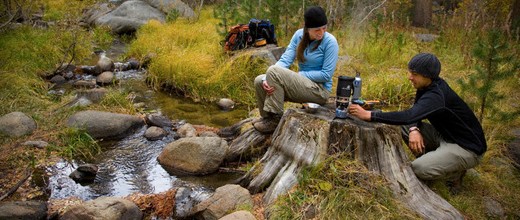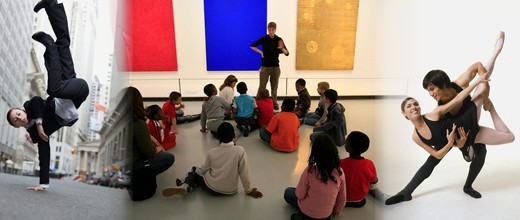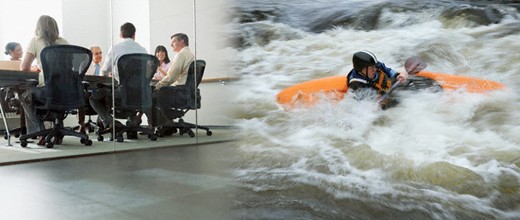Website sections:
Current section's content:
- You Can Manage and Program Creativity
- Creative Abilities and Creative Thinking Skills Management
- Briefly About CreativityModel Method Usage
- CreativityModel Method Usage Opportunities and End-User License Agreement
- Current Version of CreativityModel Method
- CreativityModel Method Abstract
- CreativityModel Method Version Changes
- CreativityModel Method Glossary
- Explanation of the Method's Component Parts and How the Component Parts Interact
- Explanation of How the Method's User Achieves Results
- CreativityModel Method - Generate Dots, Connect the Dots
- CreativityModel Method Usage Areas
- The Artist in You
- Growth of the Artist in You
- The Result Getter in You
- Applying the Result Getter in You
- About Choice Supported Creativity Usage
- The Problematic Side of Business Creativity
- Creativity Management and Business Creativity
- Sales CRM Software Development Example
- Why Does Creativity Management Matter and What Can You Do About This?
- Goal Oriented Creativity Management and CreativityModel Method
- Goal Oriented Creativity Management and Your Personal and Professional Life
- Teenager, Version 1 - Confusion
- Teenager, Version 2 - Career Development and Life Management
- Managers, Version 1 - Zigzagging Business Development
- Managers, Version 2 - Innovation Management and New Product and Service Development
- The President, Version 1 - Some of It Did Happen
- The President, Version 2 - Self-Expression, Conflict Resolution, Creativity and Leadership
- CreativityModel Method Development Background
- Further Development of CreativityModel Method




















CreativityModel Method Development Background
Contents
- Early Years of CreativityModel Method Development
- CreativityModel Method Version 1 Development, Methodology and Sources Used
Early Years of CreativityModel Method Development
My interest in how a person can manage his or her own creative thinking skills goes back a long time, to early 1990s when I went to college. It started with my interest in how computer usage affects creative thinking processes.
As a student I noticed many instances where for me computer usage made a difference in the creative process. That made me wonder, what is it about computer usage that allows me to be more creative? How do the relevant processes work? Can I learn to use these processes somehow systematically, on demand, when I want to do so? Is this something that is characteristic to me and perhaps to a small number of other people, or is here something that pertains to most of the people?
I did some research on these topics and found material that interested me as a student (in college I majored in economics and had management, psychology and philosophy all as officially declared minors). However, I did not find any comprehensive descriptions or studies of how the creative processes work. Only years later I learned that contemporary science doesn't deal with the subject matters that it cannot handle scientifically, creativity usage being one of them.
Every once in a while I observed my own creative processes. Some steps and principles started to emerge.
I started also noticing, that increasingly I am using the same steps and principles during the creative development related processes when I'm not using a computer, and that doing so helps me to be more productive, efficient and effective. It seemed as if I was applying what worked with computer usage also when I was not using a computer.
Every once in a while I also did additional research in order to find information that I could relate to my own experiences. Quite a few sources of information on creativity exist, but I could not find any unified theory, model or method that most people could use and would describe the creative development steps and processes from start to completion sufficiently comprehensively and understandably, no matter what kind of project is involved, small or large.
As a side note I will add that my not finding such a method may be my shortcoming and such method may exist already. If that's the case, I would be eager to see what kind of feedback it has received and how it has been used.
Then I noticed that in business world and in organizational management some people use very similar steps and principles that I had recorded in creative project development context, but for different purposes. These steps and principles were used for task, workflow and resource management, even when the project had very little to do with creative work and the focus was instead on achieving goals and objectives. Every time when project input resources (time, labor, and other resources) were managed in that manner consistently, the outcome of the project was dissatisfactory. As project participant, I myself lost some pretty good opportunities because of that, because the deadlines were not kept, deliverables were not what was agreed on and budgets were exceeded.
Over the years I noticed again and again this same issue of people applying certain self-expressive creativity usage related steps and principles in project management and in business and organizational management, when goals had to be set and achieved. Every time problems followed in one form or another.
Around 2002 I decided to put these two sides of my observations, the self-expressive artistic creativity usage related side, and the goal oriented project management, business and organizational management related side, together into one method. There clearly were relationships between these two sides of creativity usage. Some of these relationships were positive, that is, the two sets of principles worked together. In other cases there seemed to be an inverse relationships, and when one set of principles was applied, the other had to be put aside in order to avoid negative consequences.
I worked on this as a hobby, mostly over the weekends. Because I put together all the results from scratch, without any outside sources that I could use for guidance as a directly relevant material, it took me a lot of work and many versions before anything emerged that was even close to a coherent method.
At the time I was getting increasingly fascinated by computer application development. I had been doing database development related work for several years already, and had been continuously self-educating myself in different information technology areas. I was also evaluating the creativity usage method that I was working on from computer application development perspective, and was looking for ways to use it in application development context. Could it be programmable, too, so that computer application parts and functionality pieces can be based on it, in addition to people being able to use similar principles as thinking skills and processes, independently of computer usage?
I was working as a contractor. All the work I did for the customers belonged legally and rightfully to the customers who paid for it. Of course, the work that I did on the creativity method as a hobby over the weekends was completely separate and different from the work that I did for the customers as a database application developer.
At the time I had not figured out yet what I wanted to do with this method and how I intended to use it. In order to avoid any legal issues and possible ownership related trouble, on 8/29/03 I filed a disclosure document with the U.S. Patent and Trademark Office (Disclosure Document No. 537699). I did some more research on patenting and on 03/01/04 filed for two provisional patents. One was for Computer Enhanced Creative Development Method (that later became CreativityModel Method) and the second was for its computer application development focused counterpart, that I at the time named User-based Intelligent Application Development Method and I currently call CreativityModel Tool Development Method (provisional patents 60/549410 and 60/549411).
During the following years I made some improvements to CreativityModel Method. Thereafter, for several years I worked for one company, commuted a lot and generally had less time available for working on CreativityModel Method.
CreativityModel Method Version 1 Development, Methodology and Sources Used
In 2009 I had more time available and decided once again to work on CreativityModel Method. I rewrote the previous material, documenting the creative thinking processes from creativity usage perspective. I focused on creativity usage from starting point to project completion, where project can be any undertaking that requires creative development efforts.
The approach that I used for putting CreativityModel Method together is somewhat similar to documenting subject matters and information flow (workflow) in IT business analysis cases for complex applications.
Just like I had done in the past when I worked on this Method's development, for project specific rules I used US patent application filing guidelines.
The end result is a creative thinking skills management method that addresses goal oriented business creativity and self-expressive artistic creativity usage, so that both types of creative thinking skills can be combined as necessary.
I put together most of CreativityModel Method by using introspective observations (self-observations). I searched Internet for other sources that describe creativity usage processes, so that I could observe them. I found documentaries and some movies to be most helpful in this area. There are very good books (and articles) on creativity related material, but most of them do not describe creativity usage processes so that these processes can be observed and documented.
Below are some documentaries and movies that I found most useful.
- Sketches of Frank Gehry
- 2005
- (Including the Q&A with the director Sydney Pollack.)
- Cast: Michael Ovitz, Sydney Pollack, Frank O. Gehry, Julian Schnabel, Dennis Hopper, Bob Geldof, Michael Eisner, Barry Diller
- Hearts of Darkness: A Filmmaker's Apocalypse
- 1991
- (A documentary that describes Apocalypse Now making process and includes many Francis Ford Coppola's insights.)
- Director: Fax Bahr, George Hickenlooper, Eleanor Coppola
- Cast: Martin Sheen, Dennis Hopper, Robert Duvall, Francis Ford Coppola, Marlon Brando, George Lucas, Harrison Ford, Robert De Niro, Sofia Coppola
- 8 1/2
- 1963
- (Including various commentaries that come with most version of this movie.)
- Director: Federico Fellini
- Cast: Marcello Mastroianni, Claudia Cardinale, Rossella Falk, Anouk Aimée, Sandra Milo, Barbara Steele, Caterina Boratto, Edra Gale, Guido Alberti
- The Pixar Story
- 2007
- Director: Leslie Iwerks
- Cast: Stacy Keach, Ed Catmull, John Lasseter, Steve Jobs, Tim Allen, Brad Bird, George Lucas, Tom Hanks, Michael Eisner
- The Cutting Edge: The Magic of Movie Editing
- 2004
- Director: Wendy Apple
- Cast: Kathy Bates, Quentin Tarantino, Jodie Foster, Sean Penn, Martin Scorsese, James Cameron, George Lucas, Rob Cohen, Ridley Scott, Wes Craven, Zach Staenberg
- Crumb
- 1994
- Director: Terry Zwigoff
- Cast: Robert Crumb
- American Splendor
- 2003
- Director: Shari Springer Berman, Robert Pulcini
- Cast: Paul Giamatti, Hope Davis, Harvey Pekar, Shari Springer Berman, Earl Billings, James Urbaniak, Judah Friedlander, Robert Pulcini, Toby Radloff, Joyce Brabner, Donal Logue, Molly Shannon, James McCaffrey, Josh Hutcherson
- Howl
- 2010
- Director: Rob Epstein, Jeffrey Friedman
- Cast: James Franco, David Strathairn, Jon Hamm, Bob Balaban, Alessandro Nivola, Treat Williams, Mary-Louise Parker, Jeff Daniels
- Glass: A Portrait of Philip in Twelve Parts
- 2007
- Director: Scott Hicks
- Cast: Philip Glass, Ravi Shankar, Woody Allen, Martin Scorsese, Godfrey Reggio
- Stanley Kubrick: A Life in Pictures
- 2001
- Director: Jan Harlan
- Cast: Woody Allen, Alex Cox, Peter Ustinov, Tom Cruise, Shelley Duvall, Nicole Kidman, Stanley Kubrick, Malcolm McDowell, Matthew Modine, Jack Nicholson, Alan Parker, Sydney Pollack, Steven Spielberg, Martin Scorsese
- Milton Glaser: To Inform and Delight
- 2009
- Director: Wendy Keys
- Cast: Milton Glaser, Katrina vanden Heuvel, Peter Mayer, Shirley Kenny, Shirley Glaser, Jivan Tabibian, Ralph Caplan, Brookie Maxwell, Steve Heller, Deborah Adler, Walter Bernard, Katja Maas, George Lang
- No Direction Home: Bob Dylan
- 2005
- Director: Martin Scorsese
- Cast: Bob Dylan, Joan Baez, Allen Ginsberg, Pete Seeger, Mavis Staples, Peter Yarrow, Bob Johnston, D.A. Pennebaker, Al Kooper
- Maya Lin: A Strong Clear Vision
- 1995
- Director: Freida Lee Mock
- Cast: Maya Lin
- Starz Inside: Fog City Mavericks
- 2007
- Director: Gary Leva
- Cast: Peter Coyote, Francis Ford Coppola, George Lucas, Clint Eastwood, Chris Columbus, Robin Williams, Michael Douglas, Sofia Coppola, Anthony Minghella
- Mark Twain
- 2000
- Director: Ken Burns
- Cast: Keith David
- The Outsider
- 2006
- Director: Nicholas Jarecki
- Cast: Woody Allen, Robert Downey Jr., Neve Campbell, James Toback, Harvey Keitel, Mike Tyson, Jim Brown, John Calley, Damon Dash, Roger Ebert, Bridget Hall, Woody Harrelson, Barry Levinson, Norman Mailer, Bijou Phillips, Brett Ratner, Brooke Shields, Robert Towne, Oliver 'Power' Grant
- Marc Jacobs & Louis Vuitton
- 2007
- Director: Loïc Prigent
- Cast: Marc Jacobs
- Jackson Pollock: Love and Death on Long Island
- 1999
- Director: Teresa Griffiths
- Cast: Neil Pearson, Jackson Pollock, Ed Harris, Lee Krasner
- Pollock
- 2000
- Director: Ed Harris
- Cast: Ed Harris, Marcia Gay Harden, Tom Bower, Jennifer Connelly, Bud Cort, John Heard, Val Kilmer, Robert Knott, David Leary, Amy Madigan
- The Life and Times of Allen Ginsberg
- 1994
- Director: Jerry Aronson
- Cast: Joan Baez, William S. Burroughs, Allen Ginsberg, Timothy Leary, Ken Kesey, Norman Mailer, Jack Kerouac, Neal Cassady, Bob Dylan, Stan Brakhage
- Bukowski: Born into This
- 2003
- Director: John Dullaghan
- Cast: Charles Bukowski, Sean Penn, Harry Dean Stanton, Bono, Taylor Hackford, Barbet Schroeder, Tom Waits
- Waking Sleeping Beauty
- 2009
- Cast: John Lasseter, Brad Bird, John Musker, Ron Clements, Glen Keane, Tim Burton, Don Bluth, Roy Disney, Michael Eisner, Jeffrey Katzenberg
- Director: Don Hahn
- A Touch of Greatness
- 2004
- Director: Leslie Sullivan
- Cast: Albert Cullum
- POPaganda: The Art & Crimes of Ron English
- 2004
- Director: Pedro Carvajal
- Cast: Ron English, Pedro Carvajal, Shepard Fairey
- Tom Dowd and the Language of Music
- 2003
- Director: Mark Moormann
- Cast: Tom Dowd, Ray Charles, Eric Clapton, Allman Brothers, Les Paul, Lynyrd Skynyrd, Aretha Franklin, Joe Bonnamassa
- Rivers and Tides
- (Andy Goldsworthy Working With Time)
- 2003
- Director: Thomas Riedelsheimer
- Cast: Andy Goldsworthy
- The Doors
- 1991
- Director: Oliver Stone
- Cast: Val Kilmer, Meg Ryan, Kathleen Quinlan, Michael Wincott, Michael Madsen, Josh Evans, Dennis Burkley, Billy Idol, Kyle MacLachlan, Kevin Dillon, Frank Whaley, John Densmore, Mimi Rogers, Paul Williams, Crispin Glover, Jennifer Tilly, Annie McEnroe
- Exit Through the Gift Shop
- 2010
- Director: Banksy
- Cast: Banksy, Shepard Fairey, Thierry Guetta, Rhys Ifans, Space Invader, Jay Leno, Joshua Levine
- Joni Mitchell: Woman of Heart and Mind
- 2003
- Director: Susan Lacy
- Cast: Joni Mitchell
- Art & Copy
- 2009
- Director: Doug Pray
- Cast: Lee Clow, Cliff Freeman, Jeff Goodby, David Kennedy, George Lois, Charlie Moss, Hal Riney, Phyllis K. Robinson, Ed Rollins, Rich Silverstein, Mary Wells, Dan Wieden
- The Mystery of Picasso
- (Le Mystére Picasso)
- 1956
- Director: Henri-Georges Clouzot
- Cast: Pablo Picasso
- Walt: The Man Behind the Myth
- 2001
- Director: Jean-Pierre Isbouts
- Cast: Dick Van Dyke, Roy Disney, Art Linkletter, Dean Jones, Leonard Maltin, Ray Bradbury
- Alfred Stieglitz: The Eloquent Eye
- (American Masters: The Artists Series)
- 2000
- Cast: Alfred Stieglitz
- Atlantic Records: The House that Ahmet Built
- 2007
- Director: Susan Steinberg
- Cast: Ahmet Ertegun, Bette Midler, Robert Plant, Ray Charles, Aretha Franklin, Kid Rock, Eric Clapton, Phil Collins, Mick Jagger, Solomon Burke, Ben E. King, Led Zeppelin
- Inside the Actors Studio: Robin Williams
- 2008
- Cast: Robin Williams, James Lipton
- Frank Lloyd Wright
- 1998
- Director: Ken Burns
- I.M. Pei
- 1997
- Director: Peter Rosen
- Cast: I.M. Pei
- What Are Dreams?: Nova
- 2009
- Director: Charles Colville, Sarah Holt
- Cast: Jamie Effros, Deidre Barrett, Patrick McNamara, Howard Katz, Robert Stickgold, John Shneerson, G. William Domhoff, Erica Harris, Matthew Wilson, Sara Mednick
- Tales from the Script
- 2009
- Director: Peter Hanson
- Cast: Allison Anders, Jane Anderson, Doug Atchison, John August, Shane Black, John D. Brancato, John Carpenter, Larry Cohen, Frank Darabont, Steven E. de Souza, William Goldman, Paul Schrader, Antwone Fisher, Josh Friedman
- Gonzo: The Life and Work of Dr. Hunter S. Thompson
- 2007
- Director: Alex Gibney
- Cast: Hunter S. Thompson, Johnny Depp, Melissa Otero, George W. Bush, Eugenia Care, Martin Luther King Jr., Gary Hart, Robert F. Kennedy, Brian Kimmet
- Yves St. Laurent: His Life and Times
- 2004
- Director: David Teboul
- Cast: Yves Saint-Laurent
- Frontline: Digital Nation
- 2010
- Director: Rachel Dretzin
When self-expressive creativity is used in situations that require goal oriented creativity usage, problems follow. The same applies when goal oriented creativity principles are violated by establishing goals, but not a structure that realistically can lead from the actual starting point to achievement of the goals.
These principles seem to be working like some sort of a "law of nature." The bigger is the sphere of influence that the decision-maker has, the bigger tends to be the number of people who are affected negatively.
Below are some good descriptions of how these processes work. Of course, in smaller and not so well documented circles similar processes take place rather often, affecting among others countless companies and people working for them.
It's not necessarily the case that in each such situation people involved are unethical, or incompetent, or somehow "rotten." The decision-making processes that are used are simply unsuitable for the circumstances.
So, maybe it's worthwhile to study these phenomena further from self-expressive creativity and goal oriented creativity usage perspective, so that we can also explore if we can make a positive impact in the relevant areas?
Goal oriented creativity and choice supported creativity basic principles are not difficult to learn. Obviously, this is not a silver bullet or a remedy for all the problems, but these principles are relevant to variety of circumstances and unless proven otherwise, there are reasons to believe that their usage can be helpful.
In my opinion, children should learn these principles no later than in high school. I am certain, that if I personally would have learned these principles at a younger age, that would have had a big and positive impact on my life.
What's your opinion on this?
- Frontline: Bush's War
- (Part 1 & 2)
- 2008
- No End in Sight
- 2007
- Director: Charles Ferguson
- Cast: Campbell Scott
- Frontline: The Warning
- 2009
- Director: Michael Kirk
- Cast: Will Lyman, Jim Gilmore, Brooksley Born, Gary Gensler, Michael Greenberger, Arthur Levitt, Joseph Stiglitz
- Enron: The Smartest Guys in the Room
- 2005
- Director: Alex Gibney
- Cast: Peter Coyote, Gray Davis, David Freeman, Bethany McLean, Ken Lay, John Beard, Jeff Skilling, Andrew Fastow, Amanda Martin-Brock, Lou L. Pai

